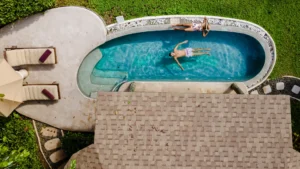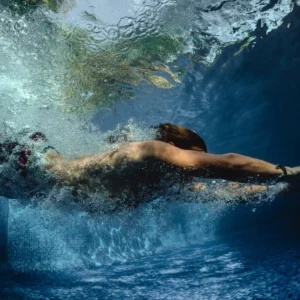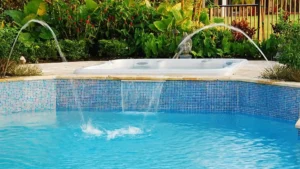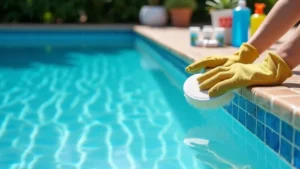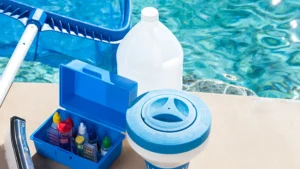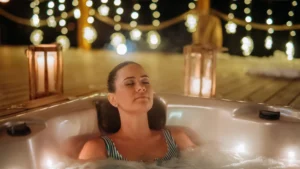The surface of your pool can change its fundamental look. If you are bored by your pool or your pool’s surface could use repairs, consider hiring your local pool service to resurface your pool this summer. Here are three different types of pool finishes that can improve the look of your whole backyard.
Plaster
Plaster is one of the most used pool finishes and has been around since the 1960s. This surface is hard, yet smooth and appears white in color. This can cause your pool water to appear bright, clean and light blue. It is also considered one of the most affordable methods of resurfacing a pool, according to Express Pool Plastering.
Plaster pool finishes are made from cement and a white marble aggregate. This causes the surface to be more porous and reactive. The porousness reflects in its ability to exhibit stains more often. While it can handle high chemical usage, it does require a bit more maintenance and care than other surfaces if you want it to last a long time. SwimmingPool.com suggests that pool plaster lasts between five and 10 years.
Plaster surfaces are great for your first pool or if you have small children. Its cost compared to other surfaces makes plaster a good choice for someone on a budget. The color of a plaster finish allows you to design your backyard in any way that you wish.
Pebble
Pebble pool surfaces begin with a layer of specially formulated cement. This cement contains small pebbles and stones which contribute to a more natural aesthetic for your backyard. Pebbles and stones come in a variety of different colors so you can choose something that matches your patio. The texture of the pool is rougher than plaster and quartz finishes and may be rough on children’s feet and hard on automatic vacuum systems.
While pebble surfaces are more expensive than plaster, these finishes are considered quite durable and stain-resistant as pebbles react less with pool chemicals. Another cause of a higher price tag is that this surface can last between 15 and 20 years, according to SwimmingPool.com.
Pebble finished are great for families that are older. These surfaces offer an aesthetically pleasing option that can turn your backyard into a scene from the Mediterranean coast.
Quartz
Quartz pool finishes are a combination of a quartz aggregate and polymer-modified cement – technically making it a kind of plaster surface. Quartz surfaces are in ways the best of plaster and pebble finishes. SwimmingPool.com said quartz finishes typically last between seven and 12 years.
Quartz holds up well against high amounts of pool chemicals and strong weather effects due to its non-porous nature. However, these surfaces are also hard and smooth. Stains will have trouble making a home in these types of pools as well. Quartz surfaces are more durable than plaster and offer some color variety like pebbles.
Quartz finishes are perfect for families who want a low maintenance option, but also want their pool to define the backyard.
If you already have a surface that pleases you, your local pool remodeling company can fix chips and stains. Alternatively, think about changing up your backyard by resurfacing your pool with a new finish.

